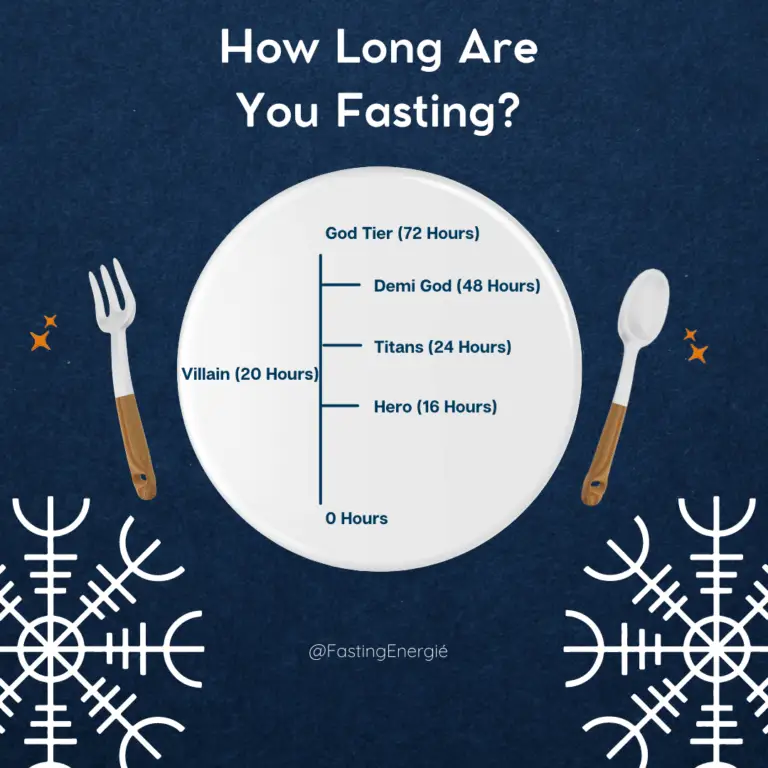The Surprising Truth About Intermittent Fasting and Muscle Gain: Does It Really Work?
Intermittent Fasting and Muscle Gain – Intermittent fasting has become a popular dieting technique with possible benefits for weight loss, metabolic health, and longevity. But what about muscular gain? Can IF help you gain lean muscle mass? This in-depth examination will delve into several facets of IF and its impact on muscle growth.
Table of Contents
The Science of Intermittent Fasting and Muscle Gain
Hormonal Responses to Intermittent Fasting
Intermittent fasting (IF) causes major hormonal changes that promote muscular building. One of the most significant of these is an increase in human growth hormone (HGH) levels. HGH promotes muscle growth, strength, and workout performance. According to studies, fasting can increase HGH levels by up to fivefold. This surge is helpful for fat loss and muscle building because it promotes fat burning for energy while maintaining muscle mass.
Another significant hormonal alteration while fasting is a decrease in insulin levels. Lower insulin levels promote fat mobilisation, allowing the body to burn fat more efficiently rather than storing it. This situation is critical during periods of calorie deficit, such as intermittent fasting, to guarantee that the body uses stored fat as its primary energy source while preserving muscle tissue.

Impact of Fasting on Muscle Protein Synthesis
Muscle protein synthesis (MPS) is the process by which the body produces new muscle proteins, and it is necessary for muscular growth. Traditionally, fasting was assumed to impede MPS due to a lack of protein intake, which is essential for activating MPS. However, intermittent fasting may improve MPS sensitivity to protein consumption. This suggests that the body may become more efficient at using amino acids for muscle development during eating times, especially after a fast when protein-rich foods are taken.
Advantages of Intermittent Fasting for Building Muscle
Increasing Fat Loss While Maintaining Lean Muscle
One of the fundamental benefits of intermittent fasting for body composition is the potential to reduce body fat while maintaining muscular mass. Intermittent fasting creates a hormonal environment with high levels of growth hormone and low insulin levels, which promotes lipolysis (fat breakdown) and fatty acid oxidation (the use of fat as fuel), while greater HGH levels assist protect muscle mass. Furthermore, fasting periods help to create an overall calorie deficit, which is required for fat loss, whereas eating windows allow for protein intake, which promotes muscle preservation and growth.
Increasing Insulin Sensitivity and Its Role in Muscle Development
Improved insulin sensitivity is another key advantage of intermittent fasting. When the body’s insulin sensitivity increases, less insulin is required to transport glucose into cells for energy or storage as fat. This condition promotes muscular growth for two reasons. First, it aids in fat loss by blocking excess insulin from storing carbohydrates as fat. Second, improved insulin sensitivity implies that glucose is used more efficiently for energy, particularly in muscle cells, which is critical during exercise when muscles need to replace their glycogen stores. This efficient utilisation of energy promotes muscle repair and growth.
Challenges in Muscle Building During Intermittent Fasting
Managing Nutrient Timing for Maximum Muscle Repair
One of the key challenges of intermittent fasting is ensuring that nutrient timing corresponds to the body’s needs for muscle repair and growth. Fasting inherently entails extended periods without food intake, so there may be worries regarding inefficient muscle protein synthesis due to occasional protein intakes. To combat this, it is critical to take enough protein throughout mealtimes. Timing protein consumption after a workout and equally distributing protein throughout meals will assist maximise the anabolic window and improve muscle recovery and growth.
Managing Potential Energy and Performance Issues
Intermittent fasting may cause variations in energy levels, especially during the first adaption phase. These changes can have an impact on workout intensity and length, both of which are important for muscular development. Low energy levels during fasting periods can result in fewer effective workouts, potentially limiting muscle building over time. To address this, the most strenuous training sessions should be scheduled during or shortly after eating windows when energy levels are likely to be greater due to food consumption.
Best Nutrition for Muscle Gain While Intermittent Fasting
Key Nutrients and Ideal Timing
To support muscle growth when intermittent fasting, prioritise the following nutrients:
- Protein: The foundation of muscle repair and growth. Choose high-quality protein sources such as lean meats, fish, eggs, dairy products, or plant-based options like lentils and chickpeas. Consuming protein quickly after workouts and distributing it throughout your food schedule can assist boost muscle protein synthesis.
- Carbohydrates: Are required to restore muscle glycogen lost during exercise. Include complex carbs such as whole grains, legumes, and veggies in your meals, particularly those ingested after a workout.
- Fats: Essential for hormonal health, particularly testosterone, which promotes muscular building. Include healthy fats such as avocados, nuts, seeds, and olive oil.
Suggested Supplements for Muscle Growth
While healthy foods should always come first, certain supplements can help with muscle growth and performance during intermittent fasting.
- Branched-Chain Amino Acids (BCAAs): BCAAs may aid in muscle protein synthesis and minimise muscle breakdown during fasting periods, particularly when taken before or during workouts.
- Creatine: Increases strength and power for more effective workouts. Creatine can be administered throughout feeding periods to help maintain muscle reserves.
- Whey Protein: A fast-absorbing protein that can be especially useful after an exercise to jumpstart muscle recovery.
- Beta-Alanine: Increases muscle carnosine levels and improves exercise performance and endurance, making it useful for fasting training sessions.
Exercise Training Strategies During Intermittent Fasting
Effective Exercise Types for Fasting Periods
During fasting periods, it is often recommended to engage in less strenuous and more aerobic-based exercises to match energy availability. These activities may include:
- Low-intensity cardio: Examples include strolling or gentle running, which largely burns fat for energy.
- Mobility work: Concentrates on improving movement and can be less taxing on energy reserves.
- Yoga and Pilates: These exercises emphasise flexibility, balance, and core strength and are suitable for lower energy states.
Tailoring Workout Schedules for Fasting Windows
Aligning training intensity with meal windows can help maximise performance and muscle growth.
- High-intensity training: Weightlifting and high-intensity interval training (HIIT) should be timed around meal times. This timing guarantees that muscle glycogen stores are restored and protein is available for quick muscle repair following the workout.
- Planning workouts Just before the eating window opens, you may maximise nutrient utilisation and improve recovery, making it ideal for resistance training sessions that require greater energy and muscle synthesis.
Case Study and Research Insights
Success Stories of Gaining Muscle Through Intermittent Fasting
Numerous anecdotal and case studies claim significant muscular increases with intermittent fasting. These frequently emphasise individuals who are able to maintain high-intensity training programmes, effectively time their nutrition intake, and prioritise high-quality protein consumption to assist muscle growth and repair.
Related Research on Intermittent Fasting and Muscle Gain
Intermittent fasting research demonstrates that with correct dietary support and training, muscle mass can be maintained or even enhanced during fasting intervals. Studies published in journals such as the American Journal of Clinical Nutrition have indicated that intermittent fasting, when paired with resistance training, results in decreased fat mass while retaining muscle mass.
Debunking Myths and Creating Realistic Expectations
Common Myths about Fasting and Muscle Loss
One common fallacy is that fasting causes significant muscle loss. However, research shows that as long as the fasting intervals are not too long and are accompanied with strength training, muscular catabolism (breakdown) is not considerably higher than with regular eating patterns. In fact, intermittent fasting has been shown to enhance growth hormone levels, which aids in the preservation of lean muscle tissue.
What to Really Expect from Intermittent Fasting
Intermittent fasting can result in gradual fat loss while preserving or growing muscle mass, with proper exercise and nutrition management.
- Improved metabolic flexibility, allowing the body to more efficiently transition between using fats and carbohydrates for fuel.
- Potential for enhanced health markers, such as decreased inflammation and improved lipid profiles.
These findings provide a more sophisticated knowledge of how intermittent fasting can be utilised to gain muscle, as well as practical guidance for incorporating it into a training plan that considers the body’s energy levels and nutrient requirements.
Conclusion:
Intermittent fasting can be an effective tool for growing lean muscle and losing fat when addressed strategically. It relies on optimising workout schedule and nutrition to reap hormonal benefits such as enhanced growth hormone production and insulin sensitivity. While it presents obstacles, such as regulating energy levels and nutrient timing, they can be overcome with careful planning and personalisation. Intermittent fasting, when done correctly, not only promotes weight loss but also aids in the development of a leaner, stronger body.
Frequently Asked Questions
u003cstrongu003eDo bodybuilders do intermittent fasting?u003c/strongu003e
Yes, some bodybuilders use intermittent fasting to improve body composition and fat loss while trying to maintain muscle mass. It can be part of their nutritional strategy, particularly during cutting phases to reduce body fat while aiming to preserve lean muscle.
u003cstrongu003eCan you lean bulk with intermittent fasting?u003c/strongu003e
Yes, lean bulking with intermittent fasting is possible. It involves consuming enough calories and nutrients during the eating windows to support muscle growth while maintaining a caloric surplus. The key is careful meal planning to ensure adequate nutrient intake within the restricted eating periods.
u003cstrongu003eDoes fasting cause lean muscle loss?u003c/strongu003e
Fasting does not necessarily cause lean muscle loss, especially if the fasting period is not excessively long and is combined with strength training. Adequate protein intake and resistance training are crucial to preserve muscle mass during intermittent fasting.
u003cstrongu003eCan you build muscle working out while fasting?u003c/strongu003e
Building muscle while working out during fasting periods can be challenging but is achievable with proper nutritional support and timing. Consuming a protein-rich meal or supplement soon after working out can help maximize muscle protein synthesis.
u003cstrongu003eDoes fasting keep you lean?u003c/strongu003e
Fasting can help maintain a lean physique by promoting fat loss and potentially increasing insulin sensitivity and growth hormone levels, which are beneficial for maintaining lean muscle tissue.
u003cstrongu003eDoes fasting increase testosterone?u003c/strongu003e
The impact of intermittent fasting on testosterone levels can vary. Some studies suggest that short-term fasting may increase testosterone levels, while others indicate minimal effects. The response can depend on the overall nutritional balance and the individual’s health status.







